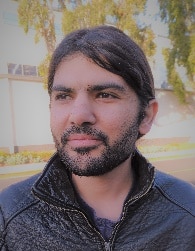Biography
Mehmet Ogut received his B.S. degree in electrical and electronics engineering from Bogazici University, Istanbul, Turkey (2007-2011), M.S degree in electrical engineering from the George Washington University, Washington, DC, USA (2011-2013) and Ph.D. degree in electrical engineering from Colorado State University (CSU), Fort Collins, CO, USA (2015-2018).
He is currently working at NASA/Caltech Jet Propulsion Laboratory (JPL) in Pasadena, California, USA as a technologist in Microwave Instrument Science Group. He is the CO-I and JPL lead of Ultra-Wideband Photonic Spectrometer for Planetary Boundary Layer Sensing funded under NASA Earth Science Technology Office (ESTO) Advanced Component Technology (ACT-20) and the CO-I of Smart Ice Cloud Sensing (SMICES) high frequency radiometer (250-670 GHz), sounder (380 GHz) and radar (240 GHz) awarded under NASA ESTO IIP-19. His expertise is design, testing, calibration and analysis of microwave and millimeter-wave radar/radiometer instruments, developing innovative concepts in radiometry and artificial intelligence applications in remote sensing. Dr. Ogut has applied a novel calibration technique on 670 GHz receiver making THz range receivers available for passive remote sensing achieving high accuracy radiometric measurements. During the Ph.D. study, he worked on the Tropospheric Water and Cloud Ice (TWICE) small satellite instrument funded by the NASA ESTO IIP-13 to develop a millimeter- and sub-millimeter-wave (118 GHz to 670 GHz) radiometer instrument for 6U CubeSat deployment. He focused on the design and testing command and data handling, and power regulation boards, on-orbit reliability analysis of the TWICE instrument including radiation testing and analysis of electrical components, and testing, characterization and calibration of TWICE receivers. In addition, he worked on the deep-learning techniques on the microwave and millimeter-wave radiometry. He applied the deep-learning calibration to High-Frequency Airborne Microwave and Millimeter-wave Radiometer NASA ESTO IIP-10 project instrument.
